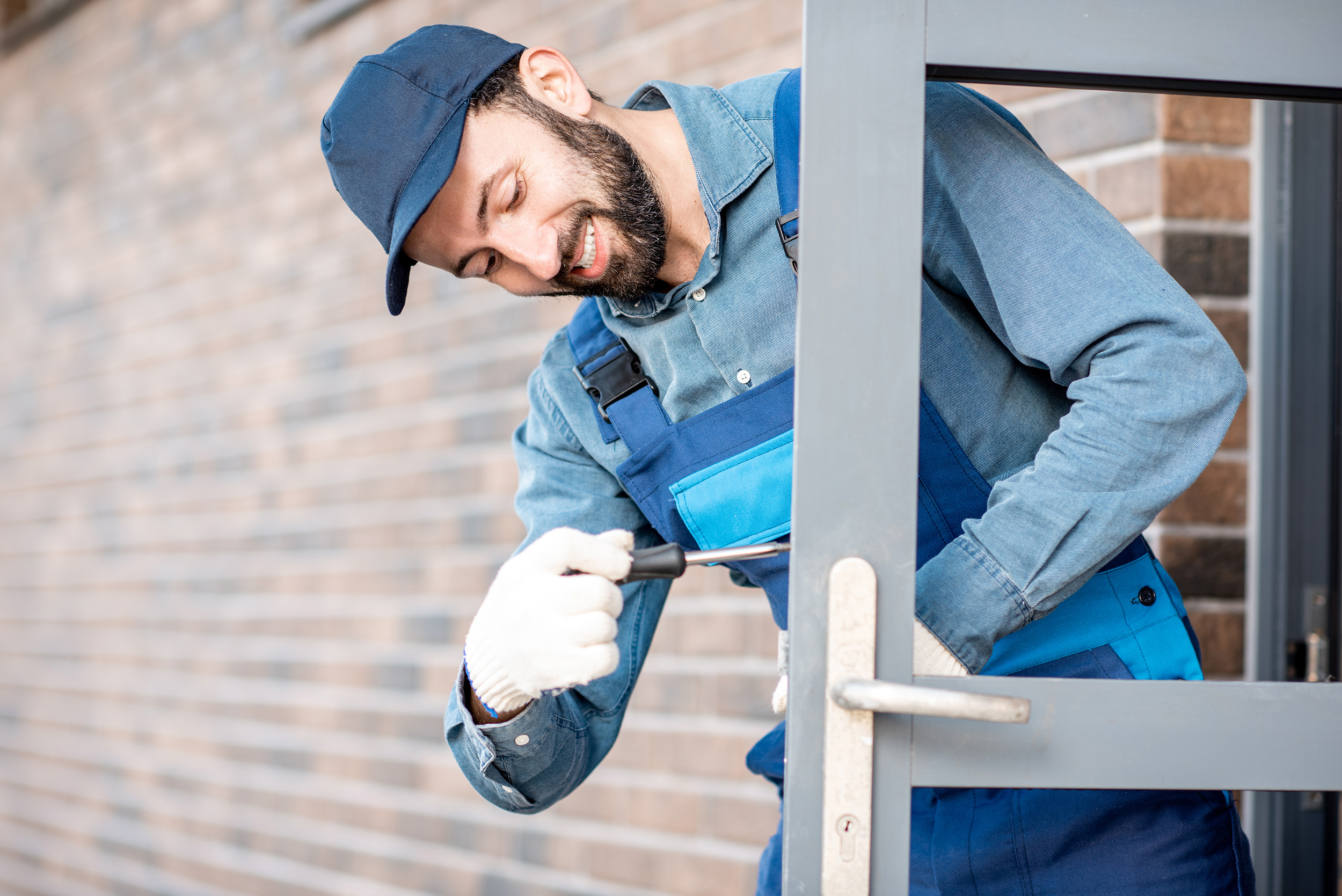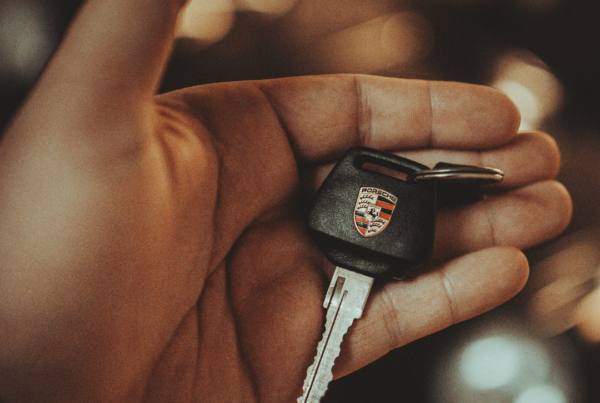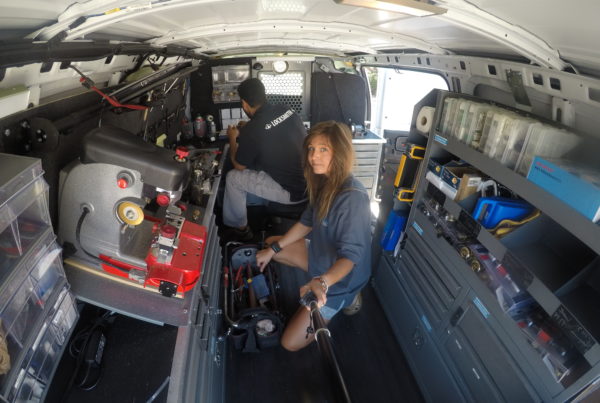When it comes to running a retail business, first impressions matter—but so does security. The glass storefront door that welcomes customers in also needs to keep intruders out. That’s why choosing the right lock isn’t just a small detail; it’s a crucial decision that directly impacts your store’s safety, liability, and peace of mind.
At Diamondback Lock and Key LLC, we know that business owners are juggling a lot—from managing employees to delighting customers. That’s why we’re breaking down everything you need to know about storefront glass door locks, including why they matter, the types to consider, how they work with access control systems, and how professional locksmith services can make all the difference.
The Unique Challenge of Glass Door Security
Glass doors are aesthetically pleasing, create a sense of openness, and showcase your merchandise to window-shoppers. But these benefits come with vulnerabilities. Unlike solid wood or metal doors, glass is breakable and often perceived as easier to bypass.
Even if the glass is reinforced or tempered, the hardware you choose—especially the locks—is what stands between your inventory and opportunistic crime. That’s why using proper commercial-grade locks designed specifically for glass doors is a must.

Types of Storefront Glass Door Locks (Expanded)
Let’s take a closer look at the main types of locks and how they serve different security needs.
1. Mortise Locks
Mortise locks are embedded within the door and consist of a lock body, a handle, and a cylinder. Known for their strength and longevity, these locks are common in high-traffic commercial settings. They’re less prone to forced entry and wear.
- Pros: Highly secure, long-lasting, aesthetic integration
- Cons: Slightly more complex installation, higher cost
2. Deadbolt Locks
Adding a deadbolt to your glass door system gives you extra protection. These locks extend a solid metal bolt into the door frame, making it extremely hard for someone to force the door open.
- Pros: Excellent secondary security, simple mechanics
- Cons: Best used in combination with another primary lock
3. Smart Locks
Smart locks bring convenience and control. Options range from keypad-entry systems to app-controlled and biometric solutions. They’re ideal for businesses with rotating staff or those looking to modernize.
- Pros: Keyless entry, access logs, remote control
- Cons: Dependent on power/battery, potentially higher upfront cost
4. Electric Strike Locks
These work with electronic access control systems and are commonly used on aluminum-framed glass doors. They allow doors to be remotely unlocked, ideal for businesses that want to monitor and control entry without needing to be physically present.
- Pros: Supports remote access, integrates with alarms
- Cons: Needs consistent power supply and correct wiring
5. Push Bar Locks / Exit Devices
While not always considered a “front door” option, push bars are required for emergency exits and sometimes used on rear glass doors in larger stores.
- Pros: Code-compliant, fast egress
- Cons: Not suitable as the only lock on a front entrance
Key Considerations When Choosing a Lock System
1. Compatibility with Glass and Aluminum Frames
Storefront doors are often framed in aluminum with narrow stiles, which means not every lock will fit. Choosing locks designed for narrow stile doors ensures the frame remains intact and functional.
2. ADA and Fire Code Compliance
Your lock system must meet accessibility and fire safety regulations. This includes ensuring that locks don’t require excessive force, are operable with one hand, and don’t impede emergency egress.
3. Visibility vs. Security Balance
While heavy-duty locks add security, they shouldn’t obstruct the clean look of your glass doors. Today’s lock manufacturers offer sleek, low-profile designs that don’t compromise on strength.
4. Durability in High-Traffic Environments
Retail doors are opened and closed hundreds—if not thousands—of times a day. Your lock must be durable enough to handle frequent use without wearing down or malfunctioning.

Access Control: Managing Who Comes and Goes
For multi-employee retail stores, access control is crucial. Gone are the days when every staff member had a physical key. Today’s smart lock systems let you:
- Assign specific entry permissions to each employee
- Monitor when and how long doors were accessed
- Disable access instantly for former staff
- Automate locking schedules
If your business operates beyond typical hours or shares space with delivery services, this level of control is not just convenient—it’s essential.
Real-World Retail Scenarios: How the Right Lock Matters
Let’s walk through a couple of scenarios to highlight how the right locking system makes all the difference:
Scenario 1: The Independent Boutique
A local fashion retailer wants a sleek glass storefront to entice walk-in customers. They choose a mortise lock paired with a smart lock keypad that gives each employee their own code. This allows the manager to track when employees clock in while keeping the front aesthetically pleasing.
Scenario 2: The Multi-Location Franchise
A small chain of coffee shops needs uniform security across all locations. The owner opts for electric strike locks connected to a central access control platform. They can now remotely unlock any door and get real-time access logs.
Scenario 3: Emergency After-Hours Situation
A local pet store has an attempted break-in at 2 AM. Because their smart lock is tied into their alarm system, an alert is sent immediately. Within minutes, a Diamondback Lock and Key technician is dispatched to secure the premises and help with an overnight rekey.
Professional Installation: Why It’s Non-Negotiable
Installing locks on glass doors isn’t a DIY job. Improper installation can:
- Void manufacturer warranties
- Cause misalignment or gaps that make forced entry easier
- Damage your glass panels
- Lead to code violations
That’s why working with a professional locksmith is critical. At Diamondback Lock and Key LLC, we ensure everything is installed to spec and tested thoroughly. We also take the time to train you and your staff on proper usage and maintenance.
The Cost of Insecurity
Some business owners balk at the price of upgrading their locks—but consider the alternative. A single break-in can cost thousands in stolen inventory, repairs, and increased insurance premiums. Not to mention the emotional toll on your staff and customers.
Investing in high-quality storefront door locks is not an expense—it’s an insurance policy for your livelihood.
Ongoing Maintenance and Security Audits
Locks, like any mechanical system, require maintenance. Over time, debris, wear and tear, and even weather changes can affect functionality. We recommend a security audit every 12–18 months to:
- Check for weaknesses or damage
- Recalibrate smart systems
- Test emergency egress systems
- Advise on new security technology updates
Diamondback Lock and Key LLC offers regular maintenance packages for business owners who want to stay proactive about security.
Conclusion: Your Front Door is Your First Line of Defense
Your storefront isn’t just an entryway—it’s the barrier between your livelihood and potential threats. By choosing the right lock system and working with experienced locksmith professionals, you’re not just locking a door—you’re securing your future.
From sleek mortise locks to smart access control systems, there’s a solution for every type of retail business. Let Diamondback Lock and Key LLC help you design a lock system that’s as strong as your business ambitions.
Ready to Upgrade Your Storefront Security?
Contact Diamondback Lock and Key LLC today for a free consultation. Our team will help you choose the right locking system for your storefront, install it flawlessly, and keep it secure for years to come.





